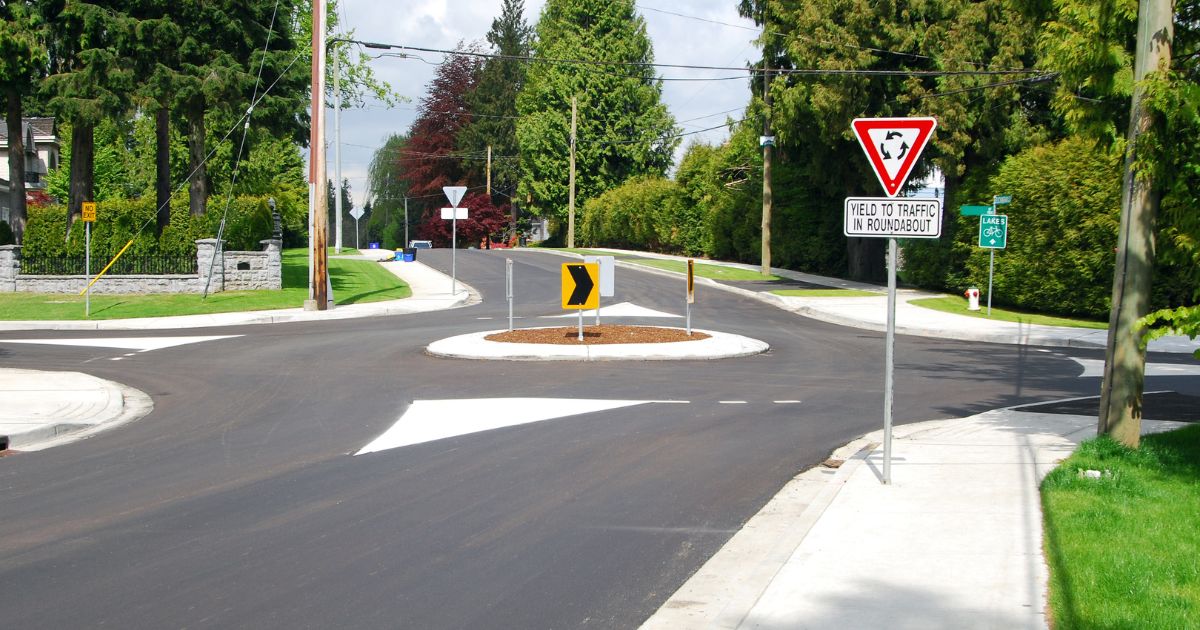A failure-to-yield accident occurs when a driver neglects to give the right-of-way to another vehicle, pedestrian, or cyclist, often resulting in collisions with severe consequences. All drivers must obey traffic laws and signs and be aware of their surroundings to prevent these severe accidents.
Failure-to-yield car accidents are a common occurrence on almost any type of roadway. They can happen in various situations, such as in an intersection, merging onto a highway or roundabout, or when a pedestrian or cyclist is crossing the road.
Failing to yield can lead to disastrous and sometimes deadly consequences. In fact, according to the National Highway Traffic Safety Administration (NHTSA), failure-to-yield accidents account for about seven percent of all fatal motor vehicle accidents in the country.
There are other consequences as well:
- Injuries and fatalities: Failure-to-yield accidents often lead to severe injuries and, in some cases, fatalities. The impact can be significant when two vehicles collide because one driver failed to yield. Pedestrians and cyclists are particularly vulnerable, and these accidents can have devastating consequences for them.
- Property damage: Beyond the physical injuries, failure-to-yield accidents result in substantial property damage. Vehicles may be severely damaged or even totaled, leading to high repair or replacement costs for the involved parties.
- Legal consequences: Drivers who fail to yield can face legal consequences, including citations, fines, and potential license suspension. In cases where injuries or fatalities occur, they may also face civil lawsuits for damages.
- Increased insurance premiums: A failure-to-yield accident can significantly increase your auto insurance premiums. Insurance companies often consider such accidents as indicators of higher risk and adjust premiums accordingly.
How to Prevent a Failure-to-Yield Accident
With proper road signage and safe driving habits, drivers and municipalities must work together to prevent failure-to-yield accidents, as well as following these steps:
- Know the right-of-way rules: Understanding and following right-of-way rules is crucial. This includes knowing who has the right-of-way at intersections, when merging onto highways, and when encountering pedestrians or cyclists.
- Obey traffic signals and signs: Traffic signals, signs, and road markings exist for a reason. Pay close attention to stop signs, yield signs, traffic lights, and crosswalk markings.
- Use turn signals: Indicate your intentions by using your turn signals. This informs other drivers of your actions and allows them to react accordingly.
- Maintain safe speeds: Speeding can reduce reaction time and increase the likelihood of a failure-to-yield accident. Always drive at a safe and appropriate speed for the conditions.
- Avoid distractions: Distracted driving significantly contributes to failure to yield accidents. Put away your phone, avoid eating while driving, and stay focused on the road.
- Be cautious when turning left: Many failure-to-yield accidents occur when a driver turns left in front of oncoming traffic. Ensure it is safe to turn before doing so.
- Look for pedestrians and cyclists: Always be on the lookout for pedestrians and cyclists, especially at crosswalks and intersections. Yield to them as required by law.
- Stay informed: Traffic laws and regulations can change, so staying informed about any updates or changes to New Jersey’s driving laws is essential.
Mount Laurel Car Accident Lawyers at the Law Office of David S. Rochman Help Accident Victims Injured in Failure-to-Yield Accidents
If you have been injured in a failure-to-yield accident because of a negligent driver, contact our Mount Laurel car accident lawyers at the Law Office of David S. Rochman. Call us at 856-751-2345 or fill out our online form for a free consultation. Located in Mount Laurel, New Jersey, we serve clients in Burlington County and the surrounding areas.


